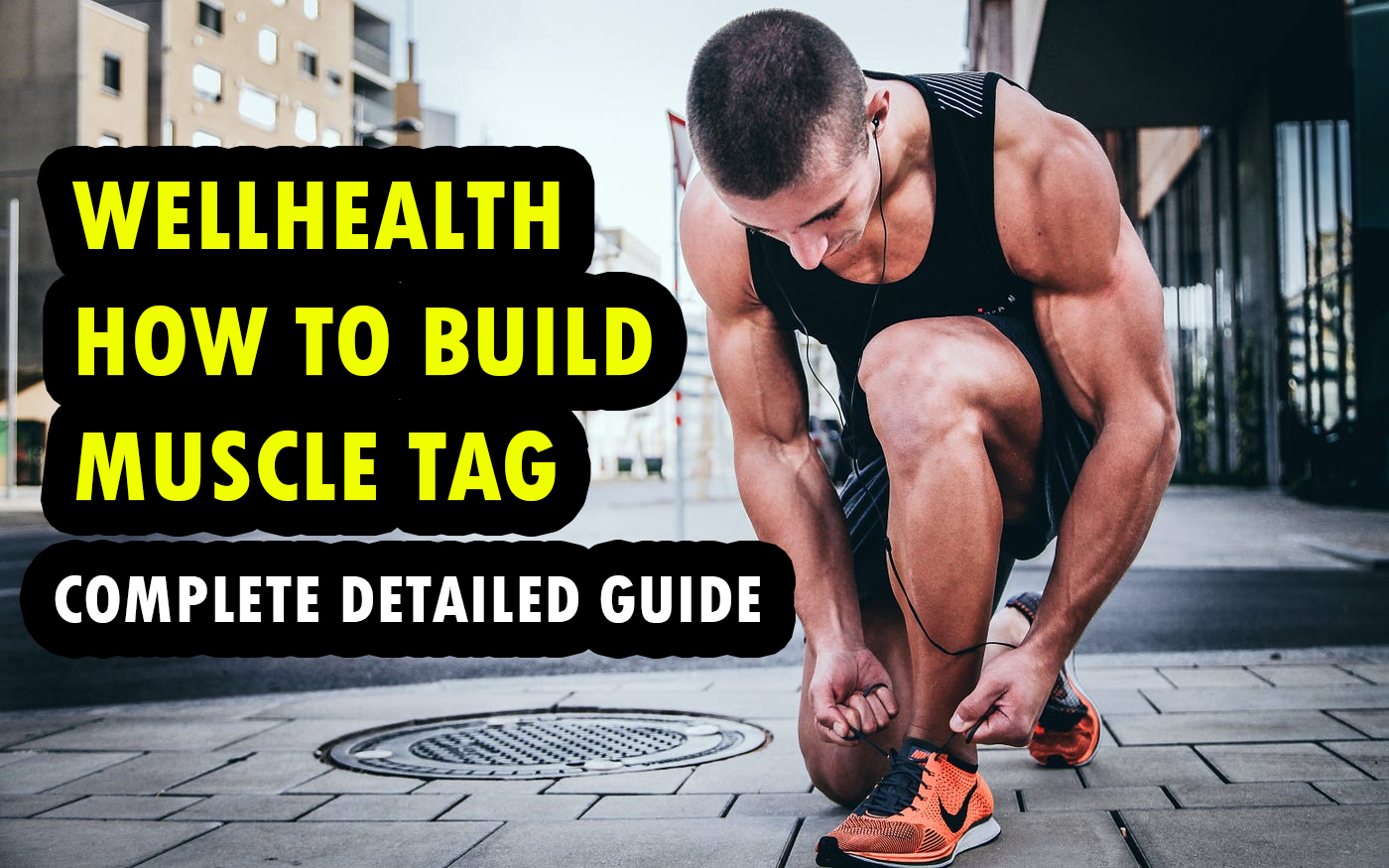In the realm of fitness and well-being, building muscle isn’t just for bodybuilders or fitness enthusiasts. “Wellhealth How to Build Muscle Tag” encompasses a holistic approach combining various wellness, health, and physical development aspects. This comprehensive guide will delve deep into strategies, nutrition, and practices under the “Wellhealth How to Build Muscle Tag,” ensuring a well-rounded discussion on achieving muscular growth and overall physical well-being.
Understanding the ‘Wellhealth How to Build Muscle Tag’ Concept
The “Wellhealth How to Build Muscle Tag” is more than a catchphrase; it’s an integrated approach that prioritizes overall health and wellness in the pursuit of muscle development. This concept dismisses the unhealthy and unsustainable practices often associated with rapid muscle gain, like extreme diets or excessive physical training, which can be detrimental to long-term health. Instead, it promotes a balance between diet, exercise, mental health, and preventive healthcare.
The Science of Muscle Building
To appreciate the strategies encompassed in the “Wellhealth How to Build Muscle Tag,” one must first understand the science behind muscle building. Muscles grow through a process known as hypertrophy, where the muscle fibers incur damage during exercise and then repair and grow thicker during rest. This cycle highlights the importance of active practice and adequate rest and nutrition for effective muscle recovery and growth.

Balanced Nutrition for Muscle Growth
A critical aspect of the “Wellhealth How to Build Muscle Tag” is proper nutrition. Proteins, the building blocks of muscles, should be consumed sufficiently. However, a balanced diet including carbohydrates, fats, vitamins, minerals, and water is equally important. Carbohydrates provide the energy required during workouts, fats support cell growth, and vitamins and minerals play various roles in muscle function and recovery.
- Protein Intake: Lean meats, poultry, fish, legumes, tofu, and dairy products are excellent protein sources. The general recommendation is to consume about 1.6 to 2.2 grams of protein per kilogram of body weight daily when aiming for muscle growth.
- Carbohydrates: Whole grains, fruits, and vegetables provide energy for your workout routines.
- Fats: Healthy fats from sources like avocados, nuts, and olive oil are essential for cellular repair and overall metabolic health.
- Hydration: Water plays a crucial role in every bodily function, including transporting nutrients to the cells and disposing of waste products.
Structured Physical Training
A structured exercise regimen is paramount under the “Wellhealth How to Build Muscle Tag.” It involves consistent resistance or strength training exercises that challenge your muscles and appropriate rest periods to allow for muscle recovery and growth.
- Strength Training Exercises: Include a variety of exercises in your routine that target different muscle groups. Examples include squats, deadlifts, bench presses, and pull-ups.
- Training Volume and Frequency: Two to three days per week of strength training is a good starting point for beginners. Gradually increase the volume and intensity as your body adapts.
- Rest and Recovery: Allocate at least 48 hours between strength training sessions for each muscle group to allow adequate recovery and growth.
Importance of Mental Health
Mental health is often overlooked in muscle-building regimens, but it’s a cornerstone of the “Wellhealth How to Build Muscle Tag.” Stress and anxiety can increase cortisol levels, a hormone hindering muscle growth. Techniques such as mindfulness, meditation, and adequate sleep can enhance mental well-being, creating an internal environment conducive to healthy muscle development.
- Stress Reduction: Engage in activities that reduce stress, such as yoga, reading, or spending time in nature.
- Adequate Sleep: Aim for 7-9 hours of quality sleep per night. During sleep, the body produces growth hormones crucial for muscle repair and growth.
- Positive Mindset: Maintain a positive outlook and set realistic goals. A supportive community or workout partner can also contribute to a positive mental state.
Incorporating Supplements Wisely
While the primary focus should always be obtaining nutrients from a well-rounded diet, certain dietary supplements can complement the “Wellhealth How to Build Muscle Tag” approach. However, they should be used wisely and as a supplement to, not a replacement for, a healthy diet.
- Protein Supplements: Whey or plant-based protein powders can help meet protein requirements, especially post-workout, to boost muscle repair.
- Creatine: This is one of the most researched and supported supplements for increasing muscle mass and strength, especially when combined with resistance training.
- Branched-Chain Amino Acids (BCAAs): BCAAs can support muscle growth, enhance exercise performance, and reduce muscle soreness after exercising.

Preventive Healthcare Measures
Preventive healthcare is crucial in any wellness-focused approach, including the “Wellhealth How to Build Muscle Tag.” Regular medical check-ups, staying updated with vaccinations, and early detection screenings are parts of preventive health that keep one’s body primed and ready for muscle growth.
- Regular Check-ups: Routine medical exams can identify potential health issues before they become serious.
- Listening to Your Body: Pay attention to your body’s signals and pain points to prevent injuries and overtraining.
- Holistic Approaches: Consider integrating massage, acupuncture, or chiropractic care for wellness and injury prevention.
Conclusion
The “Wellhealth How to Build Muscle Tag” is not a quick fix but a lifestyle approach. It underscores the importance of balanced nutrition, structured physical training, mental well-being, wise supplementation, and preventive healthcare in building muscle the healthy way. By adopting this comprehensive approach, individuals can work towards their muscle-building goals while enhancing their overall health and wellness. Remember, consistency is critical, and every step taken is closer to a healthier, stronger you.








